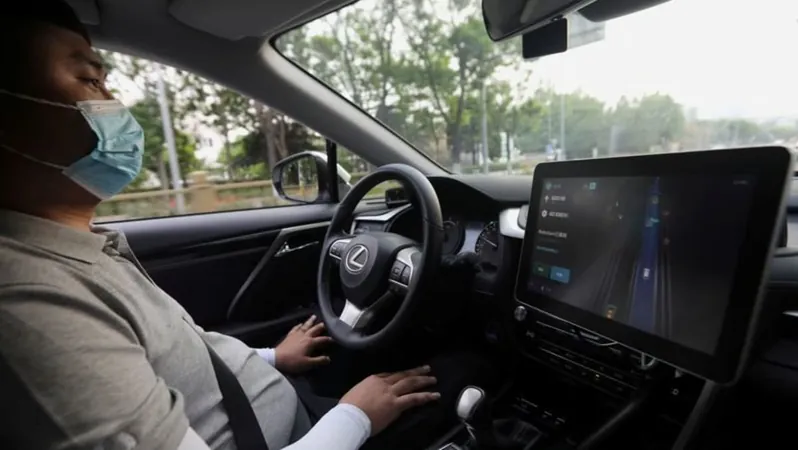
Beijing Sets the Stage for Driverless Vehicles: A Revolution in Transportation!
2024-12-31
Author: John Tan
Introduction
In a groundbreaking move for urban mobility, Beijing has unveiled new regulations to significantly boost the use of autonomous vehicles within the city. On December 31, China’s capital announced a strategic plan aimed at incorporating driverless technology into everyday transportation, eventually paving the way for autonomous public buses and taxis to serve its bustling streets.
New Regulations and Road Trials
Starting from April 1, 2024, autonomous vehicles that successfully complete rigorous road tests and safety evaluations will be eligible to pursue road trial applications. The Beijing Daily, a state-supported publication, reported that this regulatory framework not only encourages private autonomous cars but also supports the deployment of driverless trams and taxis across the metropolitan landscape. Authorities have emphasized the importance of developing intelligent road infrastructure, aiming to facilitate the seamless integration of these advanced transport systems.
Nationwide Shift
This bold initiative isn’t just limited to Beijing. Just a day prior, Wuhan, another major city in China, announced its approval of regulations aimed at promoting intelligent connected vehicles, signaling a nationwide shift towards advanced automation in transportation.
Rapid Progress in Technology
The pace of progress in autonomous driving technology is rapidly accelerating, with at least 19 cities in China currently conducting trials for robotaxis and robobuses, according to reports. Major players like Apollo Go, a subsidiary of tech giant Baidu, are leading the charge, with plans to roll out 1,000 robotaxis in Wuhan by the end of 2024.
Expansion of Robotaxi Fleets
Additionally, self-driving startup Pony.ai, which went public in November, is expanding its robotaxi fleet across China, gearing up to increase from 250 vehicles this year to over 1,000 by 2026. The competitive landscape is heating up, with other firms such as WeRide, AutoX, and SAIC Motor also exploring opportunities in the robotaxi sector.
Global Impact and Innovations
In a global context, U.S. electric vehicle leader Tesla is making waves as well; the company aims to introduce full self-driving capabilities in China by the first quarter of 2025, pending regulatory approval, and has ambitious plans to begin producing its own robotaxi by 2026.
Conclusion
As cities around the world grapple with increasing congestion and environmental concerns, Beijing's proactive approach to integrating autonomous transportation could set a precedent for others to follow. The shift towards driverless vehicles not only heralds a new era in urban mobility but also presents exciting opportunities for innovation in traffic management, safety, and sustainability. Prepare for the future of travel – the age of the autonomous vehicle is just around the corner!




 Brasil (PT)
Brasil (PT)
 Canada (EN)
Canada (EN)
 Chile (ES)
Chile (ES)
 Česko (CS)
Česko (CS)
 대한민국 (KO)
대한민국 (KO)
 España (ES)
España (ES)
 France (FR)
France (FR)
 Hong Kong (EN)
Hong Kong (EN)
 Italia (IT)
Italia (IT)
 日本 (JA)
日本 (JA)
 Magyarország (HU)
Magyarország (HU)
 Norge (NO)
Norge (NO)
 Polska (PL)
Polska (PL)
 Schweiz (DE)
Schweiz (DE)
 Singapore (EN)
Singapore (EN)
 Sverige (SV)
Sverige (SV)
 Suomi (FI)
Suomi (FI)
 Türkiye (TR)
Türkiye (TR)
 الإمارات العربية المتحدة (AR)
الإمارات العربية المتحدة (AR)